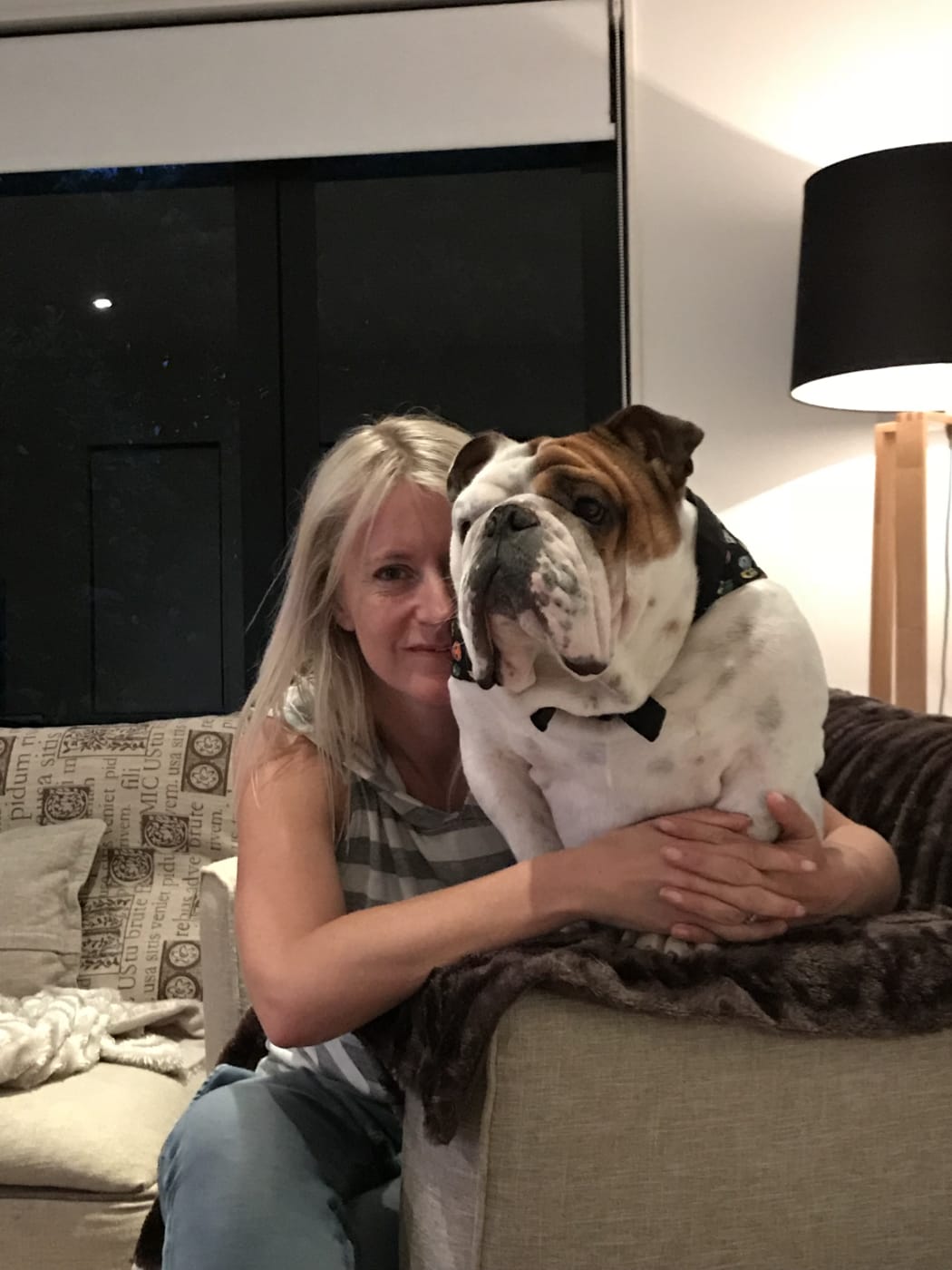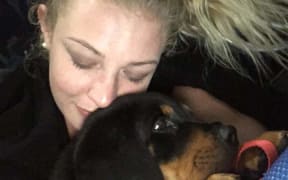An Auckland woman who says her bulldog died of heatstroke within hours of being put in doggy daycare is railing against a lack of regulation in the sector.

Natalie Newton, of Milford, Auckland, and Tank. Photo: Supplied
Although the SPCA is about to trial a new inspection scheme of daycare centres, bulldog Tank's owner Natalie Newton said that was not enough and stiffer controls were needed.
Two-year-old Tank was rushed to a vet by the doggy daycare operator on 29 December but he had suffered a massive heart attack and died.
"Absolute disbelief, heartbroken, I collapsed," said Mrs Newton of the call she received with the bad news from the centre, which RNZ is not naming while the SPCA investigates the death.
"Both my husband, my son and I just looked at each other, going this must be a prank call because he literally hadn't even been there 20 hours. The worst call I've ever had to take."
In talking over events with the centre, Mrs Newton said she was told her dog had been taken outside to play with other dogs. But it was a hot morning and she cannot believe her explicit instructions to keep him inside and cool were not followed.
"They had other bulldogs there, and also she [the operator] told us that she was the best available and that you couldn't get better.
"Unfortunately, there's no regulations so you've got no comeback - you have to trust the person that you go and see."
The Newton family had had a bad experience at a kennel previously, so were happy to pay top dollar of $700 for a month of daycare for Tank - who on this occasion stayed overnight.
Mrs Newton questioned why the daycare where her bulldog died was still operating.
"We have completed our own internal reviews and find our care to be of the highest standards," said the daycare's operator by email to RNZ.
In addition, she had launched an independent investigation into the death involving two vets, two industry leaders and the SPCA.
"In our many years of operating, we've had an outstanding safety record and have never been through this before."
A vet did not find a conclusive cause of the death, which happened very quickly, she said, and this was complicated by bulldogs being prone to a range of health issues.
Welfare code delayed
In another case, an Auckland daycare immediately stopped operating when a dog died in its care nine months ago. The dog was found with bite marks on it, in a pond.
The SPCA is still assessing whether there is enough evidence to go to court in that case.
In a third case, Ashlee Pattenden, of Whangarei, said her dog Lily was attacked while in daycare last February.
"Lily had a very large hole in the side of her neck.
"The people working at the daycare place said they don't know what happened, they didn't see it, they didn't know which dog did it. They didn't even really know it had happened until mum brought it up."
She said she had used the daycare before and thought it was OK, but would not use one again unless she could be sure high standards were being enforced.
A voluntary welfare code for daycare, kennels and catteries was expected to be in place by now. However, it is still awaiting ministerial sign-off, more than six months after its introduction was signalled and years after a draft was produced.
It has been held up in part by the change of government.
The Auckland SPCA doubts the voluntary code would be explicit enough anyway - such as recommending adequate staff to animal ratios - to help the public assess daycare operators.
Instead, it is trying a new daycare inspection scheme in Auckland, similar to its existing 'Blue Tick' animal welfare accreditation for farm products.
"This will be something that wouldn't be a legal requirement to comply with but we're hoping the industry would want to comply with it, and that people ... will go 'actually, I'd only like to have my dog at a site where there has been adoption of these best-practice guidelines,'" said Auckland SPCA chief executive Andrea Midgen.
"My vision is that we will then be able to extend this to catteries and kennel boarding and petshops."




